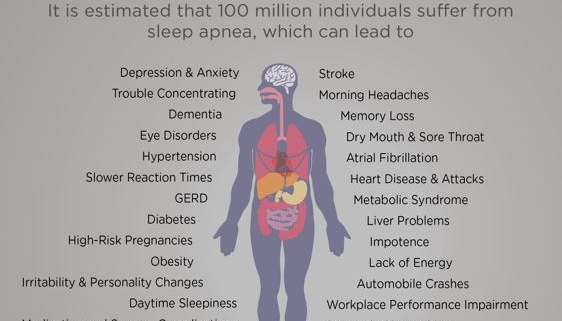The Dangers of Untreated Obstructive Sleep Apnea
The Dangers of Untreated Obstructive Sleep Apnea
Obstructive Sleep Apnea (OSA) is a common yet often overlooked sleep disorder that can significantly impact one’s health and quality of life. Characterized by repeated interruptions in breathing during sleep, OSA occurs when the muscles in the throat relax excessively, causing a temporary obstruction of the airway. While snoring is a well-known symptom, the dangers of untreated OSA extend far beyond disrupted sleep.
Understanding Obstructive Sleep Apnea
Before delving into the dangers, it’s crucial to understand what happens during an OSA episode. When the airway is blocked, the brain detects the lack of oxygen and briefly arouses the sleeper to reopen the airway. This cycle can repeat dozens or even hundreds of times per night, often without the individual being consciously aware. The result is fragmented sleep and decreased oxygen levels in the blood.
The Immediate Consequences
Daytime Fatigue and Sleepiness: One of the most immediate and noticeable effects of untreated OSA is chronic daytime fatigue. The repeated arousals prevent restorative sleep, leading to excessive daytime sleepiness, which can significantly impair daily functioning and increase the risk of accidents, particularly while driving.
Cognitive Impairments: OSA can affect cognitive functions such as concentration, memory, and decision-making. The lack of quality sleep disrupts brain function, leading to difficulties in performing everyday tasks and negatively impacting professional and personal life.
Long-Term Health Risks of OSA
Cardiovascular Disease: One of the most serious dangers of untreated OSA is its impact on heart health. The repeated drops in blood oxygen levels increase blood pressure and strain the cardiovascular system. This can lead to hypertension, heart attacks, strokes, and even heart failure. Studies have shown that individuals with untreated OSA are at a significantly higher risk for these conditions.
Diabetes: There is a strong link between OSA and insulin resistance, a precursor to type 2 diabetes. The stress and inflammation caused by repeated oxygen deprivation can impair the body’s ability to use insulin effectively, increasing the risk of developing diabetes.
Metabolic Syndrome: Untreated OSA is associated with metabolic syndrome, a cluster of conditions including high blood pressure, high blood sugar, excess body fat around the waist, and abnormal cholesterol levels. Together, these conditions increase the risk of heart disease, stroke, and diabetes.
Mental Health Implications
Depression and Anxiety: The chronic sleep deprivation and disrupted sleep patterns caused by OSA can lead to mood disorders such as depression and anxiety. The constant fatigue and stress of dealing with untreated OSA can exacerbate these mental health issues, creating a vicious cycle.
Decreased Quality of Life: The combined physical and mental health impacts of untreated OSA can significantly diminish overall quality of life. Individuals may struggle with maintaining relationships, performing at work, and enjoying leisure activities, leading to a sense of isolation and decreased life satisfaction.
Impact on Relationships
Strained Relationships: The loud snoring and frequent awakenings associated with OSA can disturb the sleep of bed partners, leading to strained relationships. The irritability and mood swings resulting from poor sleep can further exacerbate these issues, making it challenging to maintain healthy, supportive relationships.
Seeking Treatment for OSA
Given the serious consequences of untreated OSA, seeking diagnosis and treatment is crucial. Continuous Positive Airway Pressure (CPAP) therapy is the most common and effective treatment, helping to keep the airway open during sleep. Another treatment option is Oral Appliance Therapy, a mouth guard that helps keep your airway from collapsing. Other treatments include lifestyle changes, such as weight loss and avoiding alcohol before bedtime, positional therapy, and in some cases, surgery.
Conclusion
Obstructive Sleep Apnea is more than just a nuisance; it’s a serious medical condition with far-reaching health implications. Recognizing the symptoms and seeking appropriate treatment can not only improve sleep quality but also prevent the numerous health risks associated with untreated OSA. If you or a loved one are experiencing symptoms of sleep apnea, call our sleep medicine specialists at Comprehensive Sleep Care Center and take a critical step towards better health and improved quality of life. Don’t let OSA silently undermine your well-being—take action and Say Hello to Sleep Again.
#SleepDocs #SleepMatters #OSA #CPAPAlternative #BetterSleepBetterHealth











